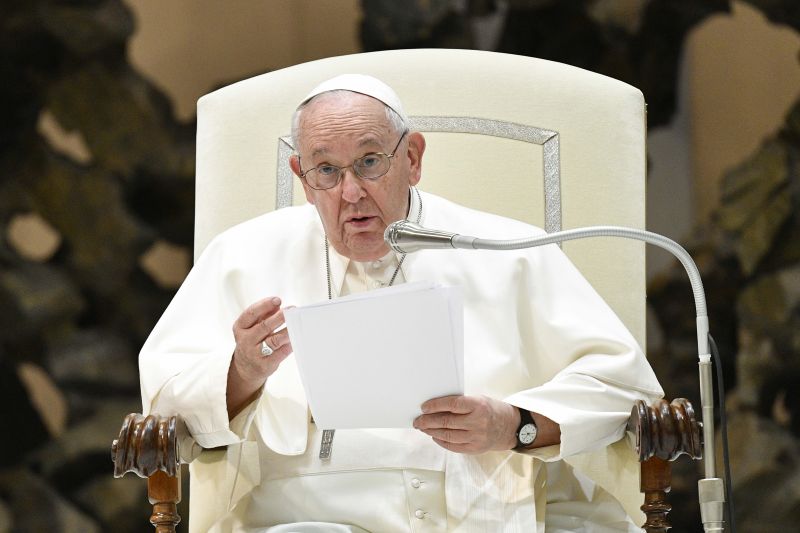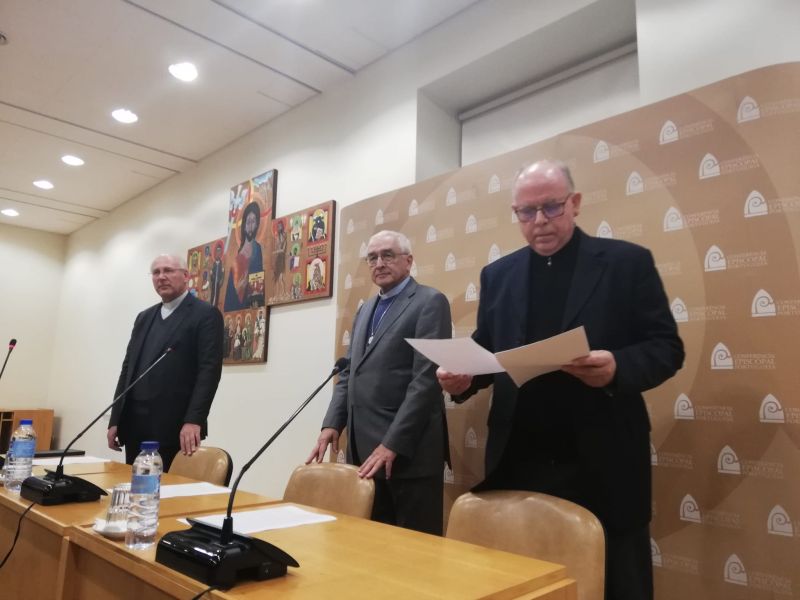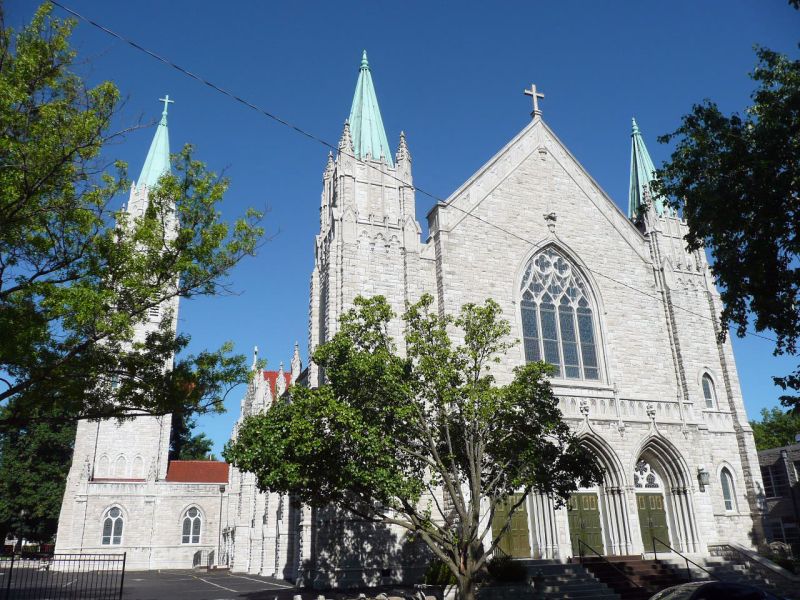
Pope Francis extends ‘Vos estis’ decree to counter both lay and clerical abuse
 Pope Francis speaks at the general audience in Vatican City’s Paul VI Hall on Feb. 22, 2023. / Vatican Media
Pope Francis speaks at the general audience in Vatican City’s Paul VI Hall on Feb. 22, 2023. / Vatican Media
Rome Newsroom, Mar 25, 2023 / 08:20 am (CNA).
Pope Francis permanently decreed Saturday an updated version of Vos estis lux mundi, his landmark legislation to counter sexual abuse in the Catholic Church.
The decree promulgated March 25 extends the Church’s norms for handling of abuse to cover lay leaders of international associations of the faithful recognized by the Vatican.
Vos estis lux mundi (“You are the light of the world”) reaffirms an obligation to report cases of “vulnerable adult” victims of abuse, including violence against religious women by clerics and cases of harassment of adult seminarians or novices by a superior.
It also includes protections for people who witness acts of abuse, in addition to those who submit reports of alleged abuse, stipulating that no “obligation of silence” may be imposed on those who report, witness, or are victims of abuse.
The new norms will go into force on April 30 and replace the pope’s previous provisional version of Vos estis lux mundi published nearly four years ago.
The norms regard what are called, in canon law, “delicts against the sixth commandment of the Decalogue,” consisting of sexual acts with a minor or vulnerable person; forcing someone to perform or submit to sexual acts through violence, threat, or abuse of authority, and the production or possession of child pornography.
In the apostolic letter signed on the Solemnity of the Annunciation of the Lord, Pope Francis wrote that it is “good that procedures are universally adopted to prevent and combat these crimes that betray the trust of the faithful.”
The pope said that the updated version of the norms takes into account the comments he received from bishops’ conferences and the Roman Curia on Vos estis lux mundi since it was published.
Pope Francis first promulgated Vos estis lux mundi in May 2019 on an experimental basis for a period of three years.
The norms for the Church’s handling of sex abuse placed seminarians and religious coerced into sexual activity through the misuse of authority in the same criminal category as abuse of minors and vulnerable adults.
The decree also established obligatory reporting for clerics and religious, required that every diocese had a mechanism for reporting abuse, and put the metropolitan archbishop in charge of investigations of accusations against suffragan bishops.
According to the law, the metropolitan archbishop conducts the investigation into a suffragan bishop with a mandate from the Holy See. The metropolitan is required to send reports to the Holy See on the progress of the investigation on a strict timeline.
The metropolitan archbishop may use the assistance of qualified lay people in carrying out the investigation, though it is primarily his responsibility, the norms state. Bishops’ conferences may establish funds to support these investigations.
Since the pope first promulgated Vos estis lux mundi, a number of bishops have been investigated and sanctioned under the norms for mishandling of abuse cases, including U.S. Bishop Michael Hoeppner of Crookston, Minnesota, and several Catholic bishops in Poland.
Brooklyn Bishop Nicholas DiMarzio was cleared after a Vos estis lux mundi investigation found no “semblance of truth” in the allegations of abuse.
Holding leaders accountable
The new norms call for the presumption of innocence of all those who are under investigation and to safeguard “the legitimate protection of the good name and privacy of all persons involved, as well as the confidentiality of personal data.”
The updated version also requires that dioceses and eparchies must have an office or organization that is easily accessible to the public to receive reports of abuse, which include not only abuse of children and vulnerable adults but also covers sexual violence and harassment resulting from the abuse of authority.
Archbishop Filippo Iannone, the prefect of the Vatican Dicastery for Legislative Texts, explained that the latest version of Vos estis lux mundi “takes up what has already been established by the new penal law canon law, in force since December 2021, and identifies them in minors, in those who habitually have an imperfect use of reason, and in vulnerable adults to whom the law ensures particular protection.”
“I believe this new norm, wanted by the pope, demonstrates the particular attention that the Church reserves for the weakest and most defenseless people, whose freedom and dignity must be respected and protected by all, punishing their violation in an exemplary way,” Iannone said.
Cardinal Blase Cupich, the archbishop of Chicago, also had high praise for the permanent application of Vos estis lux mundi.
“I think that this document is a clear indication that the Holy Father is saying that people in authority in the Church are going to be held responsible for how they handle [abuse],” Cupich said in an interview with Vatican News published March 25.
“So, it’s a clear indication that the Holy Father is going to hold people responsible, not only those who have committed abuse, but those in authority who have responsibility for handling them in a way that protects victims and gives justice to victims.”
Cardinal Charles Scicluna, the adjunct secretary of the Dicastery for the Doctrine of the Faith, said that the pope’s official confirmation of Vos estis lux mundi introduces new elements “in the history of Canon Law, such as the criminal relevance of the abuse of a vulnerable adult.”
“Among the changes is a further clarification of who the victims of abuse are. Previously, we spoke of minors and vulnerable persons, now we also speak of ‘vulnerable adults’ and ‘persons who habitually have an imperfect use of reason,’” Scicluna said.
He added: “This law concerns the future and makes it very clear that when it comes to an allegation against a lay person in the leadership of an international association, reference must be made to this particular law which has become universal.”
In the pope’s apostolic letter, Francis underlined that “crimes of sexual abuse offend Our Lord, cause physical, psychological and spiritual harm to the victims and harm the community of the faithful.”
“In order for these phenomena, in all their forms, [to] never happen again, a continuous and profound conversion of hearts is needed, attested by concrete and effective actions that involve everyone in the Church, so that personal sanctity and moral commitment can contribute to promoting the full credibility of the Gospel message and the effectiveness of the Church’s mission,” Pope Francis said.




